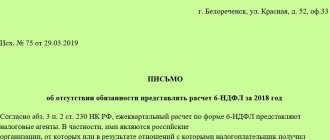If you have income, it is subject to personal income tax (NDFL). 13% of the funds received are transferred to the state.
The Tax Code recognizes as income the Tax Code of the Russian Federation Article 41. Principles for determining income, receipts in monetary or material form that brought you benefits. In other words, not all the money and gifts that you receive are considered earnings from the point of view of the Federal Tax Service. For some things the state does not need to pay the Tax Code of the Russian Federation Article 217. Income not subject to taxation.
Money as a gift
You can now receive money as a gift without paying taxes not only from close relatives, but also from people of varying degrees of acquaintance. But be careful if you are an official: a gift may be considered a bribe.
You can also accept gifts in kind, if it is not an apartment, a car, shares or shares. If any of the above is not given to you by a close relative, you will have to pay personal income tax.
A money transfer to a card, if it is a gift, is also not subject to tax.
What income is not subject to personal income tax in 2019
Article 217 of the Tax Code of the Russian Federation contains all the names of payments that are not subject to personal income tax. In this case, it does not matter whether the individual is a resident or non-resident. This list is closed and cannot be expanded. The main payments that are not subject to personal income tax in 2021 are given in the table:
Table. Payments not subject to personal income tax in 2021
| Type of income | Comment (is it subject to personal income tax) |
| Alimony | The amount of the payment does not affect the tax exemption |
| Pensions | Including benefits and additional payments to pensioners are not subject to personal income tax. |
| Scholarships | Students of universities and secondary specialized educational institutions are exempt from taxation |
| Compensation | Participants in the housing renovation program; participants in shared construction if the developer goes bankrupt |
| Travel allowance (daily allowance) | For business trips within Russia - no more than 700 rubles per day, abroad - no more than 2,500 rubles. |
| Benefits | Unemployment benefits, maternity benefits and others, except for disability benefits and caring for a sick child. |
| Payment for treatment of an employee by the employer | Personal income tax is not payable if the money was withdrawn from after-tax profits by the organization. |
| Down payment for buying a car on credit | No personal income tax is charged if funds for the down payment are transferred by the state under a special program. |
| Benefit from interest savings | Personal income tax is not deducted if the benefit is obtained from savings on interest from the use of borrowed and credit funds received from an interdependent company or an employing organization. |
| Income from gambling, lotteries, bookmakers, sweepstakes | If the winnings are more than 15,000 rubles, then the tax base is reduced by the amount of the bet. If the income from the game is less than 4,000 rubles, personal income tax is not charged. |
Income from deposits with a low rate
Personal income tax will have to be paid Tax Code of the Russian Federation Part 2 if the interest rate on a ruble deposit is five points higher than the refinancing rate of the Central Bank of the Russian Federation of the Central Bank - now it is 12.5%. For foreign currency deposits the figure is fixed - 9%.
But you simply won’t find deposits with such a rate. Interest rates on loans and deposits and the structure of loans and deposits by maturity, so you don’t have to worry about taxes.
Sales of certain goods
Tax-exempt products include:
- post office - postcards or envelopes with stamps;
- books and brochures on religious topics;
- goods from Duty Free stores;
- food products in canteens at medical or educational institutions;
- scrap metal;
- uncut diamonds and rough ore.
The tax is also not charged when selling services and goods through organizations of disabled people. But at the same time, there should be at least 80% of them in the state.
Some types of activities are not subject to tax. Therefore, aspiring businessmen have a chance to try their hand at them and gain experience. And thanks to this, owners of subsidiary farms have the opportunity to legally sell their products.
Income from the sale of certain types of products
If you grow vegetables and fruits on your plot, sell meat, milk, eggs, you don’t have to pay tax. But only if these conditions are met:
- the total area of the land plot does not exceed Federal Law of July 7, 2003 N 112-FZ “On personal subsidiary plots” 0.5 hectares;
- you do not use hired labor;
- you have a document that confirms the first and second points. It is issued by the relevant local government body, the board of a horticultural, gardening or dacha non-profit association of citizens.
If you sell wild fruits, berries, nuts, and mushrooms collected in the forest, you also don’t have to pay tax.
What amount is not subject to income tax?
Is sick leave taxed and paid?
An employee of an enterprise who is ready to begin work must provide a sick leave certificate to his employer. At the same time, he is entitled to receive compulsory compensation at the expense of the employer during the entire period of incapacity for work.
The amount of the transfer is equal to the amount of the average salary per month during absence from work. This amount is part of an individual’s income and, therefore, is subject to mandatory taxation.
Since benefits for temporary disability certificates relate to the employee’s income, they are subject to tax (monetary income).
Maternity payments
In Russia, expectant mothers are required to undergo social insurance during the period 70 days before giving birth and 70 days after.
According to tax legislation, government benefits paid to citizens of the country are not subject to taxation. This also affects the amount of maternity transfers.
Only those payments that are defined as enterprise costs in the state tax system can be subject to taxation. Maternity leave amounts do not fall under this category, since they are transferred by the state.
Important - the additional payment to the maternity leave amount for the position is taxable, since it is subject to accounting as profit.
In such circumstances, the company spends a specific amount of money on employee labor.
Alimony
In paragraph 5 of Art. 217 of the Tax Code of the Russian Federation determines that alimony amounts are included in the list of income that is not subject to taxation.
Important - the amount of the penalty that is collected from the alimony payer due to the delay in the obligatory alimony payment is not subject to taxation.
How to calculate the transport tax on a car is detailed in the article.
You can understand how to fill out a tax refund return for education by reading the article.
What tax you will have to pay for the purchase and sale of a land plot is indicated here: https://ruleconsult.ru/grazhdanskoe/nedvizhimost/nalog-s-prodazhi-doma-s-zemelnym-uchastkom.html
Read also about what tax is paid when selling an apartment.
What the abolition of property taxes for pensioners involves is described in detail in the article.
Alimony transfers are not considered the income of the person who is the final recipient of the funds. Alimony is an option for the redistribution between parents of financial resources that are necessary for the quality maintenance of a joint child.
There is a certain order.
- The monthly salary of the alimony payer is formed.
- All necessary deductions, including income tax, are withheld from your salary.
- From the remaining amount of wages, alimony is withheld within the framework of the current writ of execution.
- After this, alimony is transferred to the final recipient.
Vacation pay
Since cash transfers for vacation are included in the employee’s income category, therefore, taxation is carried out in accordance with the general procedure established by law. The procedure for deduction (DW) from vacation payments is similar to the procedure for deduction from monthly earnings.
Material aid
Important - the obligation to pay tax will directly depend on the basis of the payment, its amount and nature.
There are two options - financial assistance, which is subject to taxation, and exemption from payment.
If financial assistance is provided to an employee from an enterprise in the general case, then (MON) is charged at the rate of 13%.
However, there is a certain list according to which this form of payment is exempt from taxes.
It is important that the legislation defines specific limits.
The list of types of material support from the employer that are not subject to taxation is specified in Art. 217 NK.
Tax deductions for children and for yourself
There is such a thing as tax deductions. What amount is tax-free? There are deductions for children. Depending on the child’s social status, whether he is being raised by a single parent, or whether he has a disability, the amounts may change. In general, the first child under eighteen years of age, raised in a two-parent family, saves the parent 182 rubles a month, which helps to get about two thousand a year in hand. To receive a deduction, you must provide a number of documents to the accounting department, for example, a child’s birth certificate.
However, there are limits. Thus, the cumulative income for the year should not exceed 350 thousand rubles. So, if a parent receives thirty-five thousand, then by the tenth month he will lose the right to this benefit.
Tax deductions per employee are less common. They can be used by combatants, as well as disabled people of the first and second groups. For example, the latter have the right to a deduction in the amount of five hundred rubles. This means that they save 65 rubles per month. The amount is not large enough, but overall it also helps to save money.
Wage. How is it taxed?
Everyone knows that taxes are required to be paid on income received from work. What amount of salary is not taxed? There may be several options here:
- Receiving financial assistance.
- Availability of tax deductions.
- Compensation payments.
In all of the above cases, the employee has the right to retain a certain amount, on which no tax is charged.
In other cases, the employee’s salary is subject to taxation at a rate of thirteen percent.
Personal income tax benefits for children
Contents of chapter. 23 of the Tax Code of the Russian Federation allows you to reduce the amount of tax due to the presence of a child in the family, both natural and adopted.
The following personal income tax benefits for children can be distinguished:
- financial assistance at the birth of a child;
- alimony;
- receiving maternity capital;
- reimbursement of travel costs;
- compensation for the cost of treatment.
A complete list of possible payments for a child that should not be taxed is given in the material “Art. 217 of the Tax Code of the Russian Federation (2018-2019): questions and answers" .
But these are not the only reasons that give the right to reduce the personal income tax burden if you have children. Deductions also contribute to this. These deductions include:
- social;
- standard;
- property.
Let's consider each of the deductions in more detail.
- Social deduction gives the right to reduce income by the amount:
- up to 120,000 rub. when purchasing medicines for a child or treating him;
- up to 50,000 rub. on training costs;
- up to the amount of actual expenses - in case of expensive treatment.
- The standard deduction allows you to reduce income by an amount depending on the year of birth of children and their number, as well as on whether the child is being raised in a complete family (single mothers and fathers receive a double deduction) and on whether the child is healthy or disabled.
- A property deduction gives the right to: reduce the tax base for personal income tax when selling real estate and other property, as well as reimburse the tax:
- up to 2,000,000 rub. – when purchasing real estate;
- up to 3,000,000 rub. - on mortgage interest.
According to the employment contract
This type of cooperation is the most popular. It involves creating a work book. In this case, the employer must pay personal income tax for his employee. You need to do this in this order:
- Taking into account the monthly salary specified in the employment agreement, as well as the number of days actually worked, the employer must transfer a certain salary to the employee every month.
- After the salary is calculated, the amount of tax to be withheld is determined. It is important to consider which amount of salary is not subject to income tax and which is. Its calculation is based not on the employee’s monthly earnings, but on the total amount of income that has been accrued since the beginning of the tax year. This figure will be multiplied by 13% in the future, after which the amount of tax that was allocated to the budget will be subtracted from it. Such a complex procedure is required to avoid “under-accrual” of the fiscal payment. If in the past the tax was calculated with errors, then this can be seen not at the end of the tax period, but in the following month.
- If the employer has the grounds and the payer’s application, when calculating the amount of tax to be withheld, the tax base will be reduced by the amount of the corresponding tax deductions. Taking into account the complexity of the procedure for calculating the amount of the fiscal burden, it is preferable for the employer to submit an application for a deduction at the beginning of the next tax period. If you miss the deadline, the best solution would be to wait until the end of the year and return through the Federal Tax Service the amount of income tax already paid by an individual.
- The accrued amount of taxes is withheld from wages before this or directly at the time of payment of wages to the employee. The amount of tax withheld is limited to 50% of the income that was actually paid to the employee. For example, when a certain amount is forcibly withheld (an example would be a court decision), then the income tax for individuals can be withheld only within half of the amount that remains after all deductions. If the tax on personal income is not fully withheld, then the employer must take this into account in the next month.
Tax rates: from thirteen to thirty-five
The tax on the amount is paid as a percentage. Each type of activity has its own rate. It is from this that the tax amount is calculated directly.
Thus, the most common rate of thirteen percent applies to the following types of income:
- Wages and other accruals related to the work activity of an individual.
- Income from the sale of various types of property.
A rate of fifteen percent is applied to withhold taxes on income received from dividends of an organization located in Russia.
A tax rate of thirty percent is applied to labor or other income-generating activities for non-residents of the country. The maximum rate of 35 percent is applied in cases where a citizen has received a win.
Compensation payments
What amount is not subject to income tax in employee accruals? This may include compensation payments. For example, if an employee underwent a medical examination because he was employed in hazardous work, then the amount will be returned to him in full, excluding taxes.
The same applies to payments related to maternity. A woman receives her maternity benefit, a lump sum benefit, as well as the so-called “vacation pay” when taking leave to care for her child in its pure form. No deductions are made to the tax service from these amounts.
The situation is similar with payments for dismissal of an employee. Compensation for several months when the employee is on the labor exchange is not taxed.
What is a citizen's income?
Any income is an economic benefit, expressed both in money and in kind. To tax such income, you need to determine its value. That is, even if the state wants to receive part of the income into its treasury, then without the price of the thing it is impossible to make a mathematical calculation. Hence the first problem for the state - not every income can be assessed and a price
.
The second point, without which taxation is impossible, is the proven benefit of the citizen from the acquisition
.
Therefore, in order to include any object in the tax base, both conditions must match. In the Review of judicial practice on the application of Chapter 23 of the Tax Code of the Russian Federation, approved. On October 21, 2015, the Presidium of the RF Armed Forces made the following conclusion:
5. Benefit received in kind is subject to taxation if it is not of an impersonal nature and can be determined in relation to each citizen who is a tax payer.
For example, an organization paid for fitness services for its employees. This means that, thanks to the employer, each employee satisfied his needs for physical fitness, receiving personal benefits. The price of the subscription is known. Consequently, the cost of such services may well be subject to personal income tax (personal income tax), as a citizen’s income received in kind.








